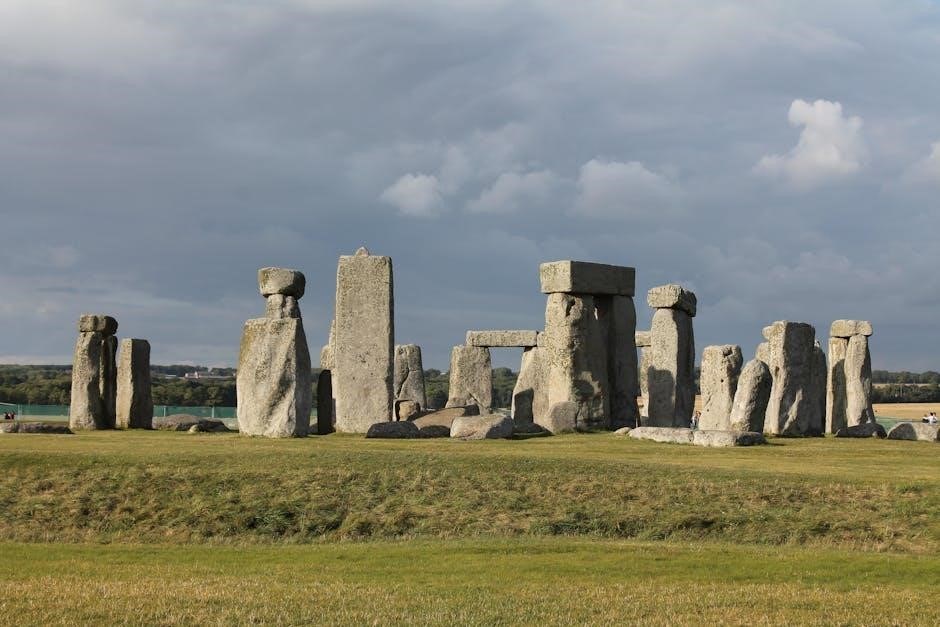Huston Smith, a renowned scholar of world religions, explores the essential teachings of major faiths like Hinduism, Buddhism, and Islam in his seminal work, The World’s Religions.
Who is Huston Smith?
Huston Smith, a philosopher and scholar of comparative religion, was born in 1919 in Suzhou, China, to Methodist missionary parents. He spent his early years immersed in Chinese culture, which sparked his lifelong interest in spirituality. Smith later became a prominent academic, teaching at universities like MIT and authoring the acclaimed book The World’s Religions, a comprehensive exploration of global faiths.
Overview of “The World’s Religions” and Its Significance
The World’s Religions, authored by Huston Smith, is a seminal work that explores the core teachings of major global faiths, including Hinduism, Buddhism, Christianity, and Islam. First published in 1958, it remains a definitive guide, emphasizing the spiritual and philosophical essence of religions over institutional frameworks. Its accessible and empathetic approach has made it a cornerstone of religious studies, fostering interfaith understanding and appreciation worldwide.
Hinduism: Core Beliefs and Practices
Hinduism revolves around Brahman, the ultimate reality, and the pursuit of liberation through four paths: knowledge, love, work, and psychophysical exercises, as explored by Smith.
The Concept of Brahman and the Ultimate Reality
Brahman, the ultimate reality in Hinduism, transcends human comprehension, representing the unchanging, all-pervasive essence of the universe. Smith highlights Brahman as the source of all existence, beyond duality and attributes, accessible through spiritual realization and self-inquiry, forming the philosophical cornerstone of Hindu thought and practice.
The Four Paths to Liberation (Yoga)
Huston Smith outlines four paths to liberation in Hinduism: Jnana Yoga (knowledge), Bhakti Yoga (devotion), Karma Yoga (selfless action), and Raja Yoga (meditation). Each path offers a unique approach to realizing the ultimate reality, catering to different temperaments and lifestyles, thus providing a holistic framework for spiritual growth and self-realization.
Huston Smith’s Insights on Hinduism
Huston Smith deeply appreciates Hinduism’s diversity and philosophical richness, emphasizing its universal appeal. He highlights its emphasis on inner transformation and the pursuit of ultimate reality through various paths. Smith’s work underscores Hinduism’s enduring relevance, offering insights into its rituals, scriptures, and spiritual practices, while respecting its role as a way of life rather than a single, rigid doctrine.

Buddhism: The Teachings of the Enlightened One
Buddhism offers timeless wisdom on the path to enlightenment through the Four Noble Truths, emphasizing mindfulness and compassion. Huston Smith highlights its universal appeal and transformative power.
The Four Noble Truths and the Eightfold Path
Buddhism centers on the Four Noble Truths: suffering exists, arises from craving, can be overcome, and is navigated through the Eightfold Path. This ethical guide—right understanding, intention, speech, action, livelihood, effort, mindfulness, and concentration—offers a practical framework for ending suffering and achieving enlightenment, as beautifully elucidated by Huston Smith in The World’s Religions.
The Role of Meditation in Buddhist Practice
Meditation is central to Buddhist practice, fostering mindfulness, concentration, and insight. Through techniques like mindfulness of breath or loving-kindness, practitioners cultivate awareness to transcend suffering. Huston Smith highlights meditation as a bridge to enlightenment, emphasizing its role in dissolving the ego and revealing ultimate reality, as detailed in The World’s Religions.
Smith’s Analysis of Buddhist Philosophy
Huston Smith deeply admires Buddhism’s clarity in addressing human suffering. He emphasizes the Four Noble Truths and the Eightfold Path as practical guides to liberation. Smith highlights meditation as a cornerstone, enabling insight into impermanence and non-self. His analysis bridges East and West, showcasing Buddhism’s universal relevance and its potential for interfaith understanding, as explored in The World’s Religions.

Confucianism and Taoism: The Essence of Chinese Thought
Confucianism and Taoism form the heart of Chinese philosophy, offering wisdom on ethics, harmony, and the natural order. Smith explores their enduring influence on Eastern thought and culture.
The Key Principles of Confucianism
Confucianism emphasizes moral values, personal ethics, and social order. Its core principles include ren (humaneness), yi (righteousness), and li (etiquette). These teachings advocate for harmony in relationships, respect for authority, and self-cultivation. Huston Smith highlights how Confucianism shapes societal norms, fostering a culture of mutual respect and moral accountability, which remains central to East Asian thought and practice.
The Taoist Concept of the Tao and Its Implications
The Tao, or “the Way,” is the central concept in Taoism, representing the ultimate reality and natural order of the universe. It emphasizes living in harmony with nature and embracing simplicity. Huston Smith highlights the Taoist principle of wu-wei (non-action), encouraging effortless alignment with the Tao. This philosophy promotes balance, inner peace, and the harmony of opposites, influencing both personal and cosmic levels of existence.
Smith’s Comparative Approach to These Traditions
Huston Smith’s comparative approach to Confucianism and Taoism highlights their complementary nature. He emphasizes the Taoist focus on harmony with nature and the Confucian emphasis on moral order, illustrating how both traditions address human flourishing. Smith’s analysis bridges their differences, revealing shared values like balance and wisdom, and underscores their relevance in fostering interfaith understanding and global harmony through their unique perspectives.
Islam: The Religion of Submission to God
Islam, centered on submission to Allah, is explored by Huston Smith in The World’s Religions, emphasizing the Quran, Hadith, and the Five Pillars as foundational to Islamic spirituality.
The Five Pillars of Islam
The Five Pillars of Islam, as explored by Huston Smith in The World’s Religions, are the foundational acts of worship and practice for Muslims. They include the Shahada (faith declaration), Salat (daily prayers), Zakat (charity), Sawm (fasting during Ramadan), and Hajj (pilgrimage to Mecca). These pillars embody the essence of Islamic devotion, uniting believers in shared spiritual and communal practices that reflect submission to Allah and foster a sense of global Muslim identity.
The Role of the Quran and Hadith
The Quran, Islam’s holy scripture, is revered as the literal word of God (Allah) revealed to Prophet Muhammad. The Hadith, comprising the Prophet’s sayings and actions, provides practical guidance. Together, they form the cornerstone of Islamic teachings, shaping beliefs, laws, and spiritual practices. Huston Smith highlights their centrality in Muslim life, emphasizing their role in inspiring devotion and moral conduct, as outlined in The World’s Religions.
Smith’s Perspective on Islamic Spirituality
Huston Smith admires Islam’s emphasis on surrender to God (Tawhid) and its rich spiritual traditions, particularly Sufism. He highlights the inner purification and love for the divine in Sufi practices, as well as the Prophet Muhammad’s exemplary life. Smith underscores the Quran’s role in guiding believers toward a balanced spiritual and ethical life, blending devotion with practical wisdom, as detailed in The World’s Religions.

Judaism and Christianity: The Abrahamic Traditions
Judaism and Christianity, rooted in the Abrahamic tradition, share a common legacy of monotheism and moral law. Smith highlights their unique contributions to ethical and spiritual life.
The Core Tenets of Judaism
Judaism, rooted in monotheism, emphasizes the covenant between God and Abraham. The Torah, as divine revelation, guides moral and ritual life. Prophets stress justice (tzedek) and righteousness (tzedakah). The ultimate goal is the messianic era, achieved through ethical living and loyalty to tradition, reflecting Smith’s insights on its enduring spiritual and cultural significance.
The Life and Teachings of Jesus Christ
Jesus Christ, central to Christianity, taught universal love, forgiveness, and the Kingdom of God. His ministry emphasized compassion, humility, and the Golden Rule. The Sermon on the Mount and parables conveyed ethical truths. Crucifixion and resurrection symbolized redemption, shaping Christian belief in salvation through faith. Smith highlights Jesus’s transformative message of divine love and its enduring impact on human spirituality and ethics.
Smith’s Exploration of Shared and Unique Aspects
Huston Smith examines both the shared ethical foundations and distinct theological emphases of Judaism and Christianity. While both traditions emphasize monotheism and moral responsibility, Judaism focuses on covenant and law, and Christianity centers on Jesus as Messiah and the path to salvation through grace. Smith illuminates these contrasts while highlighting their common humanistic and spiritual core, bridging understanding between the two traditions.
The Primal Religions: Indigenous Spiritual Traditions
Huston Smith explores primal religions, highlighting their connection to nature, rituals, and ancestors. He examines diverse traditions from Africa, Oceania, and the Americas, emphasizing their unique wisdom and spiritual insights.
The Characteristics of Primal Religions
Primal religions, as explored by Huston Smith, are rooted in nature and oral traditions, emphasizing rituals, storytelling, and symbolic expressions. These indigenous traditions often integrate the sacred into daily life, focusing on community, ancestors, and the land. Smith highlights their holistic worldview, where spirituality is woven into all aspects of existence, fostering a deep sense of interconnectedness and harmony with the environment.
Examples from Africa, Oceania, and the Americas
Huston Smith illustrates primal religions through diverse examples, such as African ancestral rituals, Australian Aboriginal Dreamtime stories, and Native American vision quests. These traditions emphasize living in harmony with nature and honor the sacred through communal ceremonies and oral narratives, reflecting a deep spiritual connection to land and heritage, as highlighted in Smith’s comprehensive analysis.
Smith’s Respect for Indigenous Wisdom
Huston Smith deeply respects indigenous traditions, highlighting their spiritual depth and ecological wisdom. He emphasizes their holistic view of nature and interconnectedness of life, contrasting with the dualistic tendencies of major religions. Smith sees primal religions as embodying universal truths, offering insights into living harmoniously with the world, and values their resilience and vitality in the face of modernity.

A Final Examination: The Relation Between Religions
Huston Smith’s work explores the interconnectedness of religions, highlighting shared human experiences and distinct beliefs. He advocates for mutual understanding and respect among diverse traditions.
Comparative Analysis of World Religions
Huston Smith’s comparative analysis highlights the unique appeal and shared human experiences across religions. He explores Hinduism, Buddhism, Confucianism, Taoism, Judaism, Christianity, and Islam, emphasizing their inner dimensions. Smith’s approach reveals both differences and commonalities, offering insights into how each tradition addresses universal questions of existence, ethics, and the divine, fostering a deeper understanding of global spirituality and its impact on human life.
Smith’s Vision of Interfaith Dialogue
Huston Smith advocates for interfaith dialogue, emphasizing mutual respect and understanding. He believes religions share common human aspirations, urging us to appreciate their unique contributions. Smith’s work fosters unity by highlighting shared ethical and spiritual values, encouraging a harmonious coexistence among diverse traditions and promoting a global community rooted in compassion and respect for all faiths.
